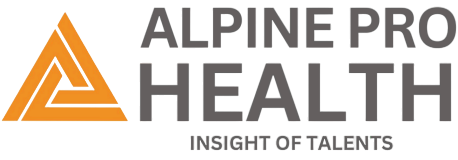The year 2026 marks a transformative era for Revenue Cycle Management (RCM) in healthcare. In this period, as providers confront workforce shortages, escalating financial pressures, and the growing complexity of payer requirements, the need for strategic modernization becomes paramount. Against this backdrop, this blog explores the top trends and strategic priorities shaping RCM, while also equipping healthcare leaders to thrive in a rapidly evolving landscape.
The State of RCM Entering 2026
Operational challenges continue to intensify. Healthcare organizations are navigating:
- Workforce bottlenecks: Difficulty recruiting, training, and retaining talent for increasingly specialized RCM roles.
- Interoperability inefficiencies: Fragmented systems stall patient care, financial performance, and data-driven decisions.
- Financial stressors: Stagnant reimbursement rates and rising claim denials burden patient collections, straining resources.
These pressures drive the urgency for innovation, automation, and strategic transformation in RCM.
Key RCM Trends to Watch in 2026
1. AI and Automation Redefine the Revenue Cycle
Artificial intelligence (AI) and automation are now foundational, not futuristic:
- To begin with, Claims Processing: Automated bots scrub claims, verify eligibility, and initiate appeals with speed and accuracy.
- Next, Patient Engagement: AI chatbots answer billing questions, automate notifications, and personalize payment plans.
- Finally, Predictive Analytics: Machine learning forecasts patient payments, identifies denial risks, and prioritizes collections.
AI-enabled RCM is poised to reduce manual workload, cut labor costs, and eliminate errors. Healthcare leaders should transition staff to manage exceptions and data oversight, rather than routine tasks.
2. Value-Based Care Dominates Payment Models
The jump to value-based contracts is seismic:
- Projections: Value-based arrangements will drive up to 70% of provider revenue by 2026.
- Complexity: Providers juggle over a dozen payment models, each with unique metrics and risk arrangements.
- Implications:
- Longitudinal Financial Management: Tracking performance across episodes of care
- Social Determinants Integration: Merging financial and clinical data to maximize contract value
- Risk Adjustment: Proactively addressing documentation gaps to optimize reimbursement
As a strategic priority, healthcare leaders should proactively embrace unified RCM platforms that not only support multi-model payments but also deliver actionable insights for contract performance.
3. RCM Outsourcing Accelerates
Demand for outsourced RCM services is forecasted to grow at 11% CAGR through 2028, reaching $25billion by 2026. Physician groups and hospitals increasingly rely on vendors for accuracy, scalability, and advanced tech integration.
What healthcare leaders must do:
- Vet partners for cybersecurity, regulatory compliance, and tech-driven processes.
- Prioritize seamless integration between outsourced solutions and internal workflows.
4. End-to-End RCM Integration Is Mission-Critical
In the current healthcare landscape, fragmented, siloed systems no longer cut it. Therefore, interoperable RCM platforms now unify billing, coding, scheduling, and payment data across care settings, thereby supporting:
- Real-Time KPIs: Immediate access to performance data
- Error-Free Submissions: Reduced denials through standardized processes
- Cross-Continuum Analytics: Monitoring outcomes for bundled payment models and population health.
Leaders must invest in robust, unified RCM technology to enable agility and scalability in their financial operations.
5. Advanced Analytics Drive Proactive Decision-Making
Data analytics has become core to financial resilience:
- Revenue Forecasting: AI models predict cash flow 60–90 days ahead with >95% accuracy.
- Precision Denial Prevention: Identify specific claim denial risks and automate interventions.
- Payer Behavior Analysis: Track patterns to optimize payer negotiations and maximize reimbursement.
Hospitals implementing advanced analytics report recovering millions in annual revenue and slicing denial rates significantly.
6. Patient-Centric Billing and Engagement Rise
Patient satisfaction directly impacts collections. The leading organizations offer:
- Transparent cost estimates
- Flexible payment plans
- Digital-first billing via mobile apps and patient portals
Make patient financial experience a top strategic priority to build loyalty and improve bottom-line performance.
7. Cybersecurity and Compliance Take Center Stage
Digital health’s proliferation magnifies risks:
- Data breaches and ransomware attacks target sensitive healthcare financial data.
- Enhanced compliance requirements such as the No Surprises Act demand robust controls and real-time monitoring.
Leadership action: invest in advanced cybersecurity protocols, continuous threat detection, and regular staff training.
Strategic Priorities for Healthcare Leaders
To remain competitive, healthcare leaders must:
- Embrace AI and Automation: Invest in scalable platforms that reduce manual tasks and maximize accuracy.
- Focus on End-to-End Integration: Break down silos and unify data across departments and care settings.
- Adopt Patient-First Billing Strategies: Remove financial barriers, offer transparency, and build trust.
- Make Data Security Non-Negotiable: Proactively address cybersecurity vulnerabilities.
- Commit to Compliance and Quality: Track regulatory changes and incorporate performance metrics into billing cycles.
- Evaluate and Optimize Outsourcing Partnerships: Ensure vendors share vision for tech-driven, secure, compliant RCM operations.
- Train, Upskill, and Restructure Teams: Center staff roles on analytics, exception management, and patient engagement.
RCM Market Outlook for 2026
The RCM market is set for robust expansion:
- Global RCM market to hit $44.7billion by 2026, with double-digit growth in AI-powered analytics and cloud-based platforms.
- End-to-end automation, predictive analytics, and patient engagement tools will become standard practice.
- Leaders who innovate, adapt, and invest in human capital, technology, and process redesign will shape the future of healthcare finance.
Why Alpine Pro Health Sets the Standard in RCM Services?
Alpine Pro Health distinguishes itself as a leader in Revenue Cycle Management by delivering tailored, technology-driven solutions that directly address the complexities and challenges healthcare organizations face in 2026. By leveraging advanced AI automation, end-to-end platform integration, and real-time analytics, Alpine Pro Health streamlines every phase of the revenue cycle from patient registration to final payment ensuring faster claims processing, reduced denials, and maximized reimbursements. The firm is committed to a patient-first approach, offering transparent billing and digital engagement tools that improve both collections and satisfaction. Moreover, Alpine Pro Health prioritizes cybersecurity with state-of-the-art protections and maintains rigorous compliance with shifting regulatory landscapes. Their dedicated team is known for personalized support and continual upskilling, helping providers stay agile and financially resilient. By embracing innovation and partnering closely with clients, Alpine Pro Health not only enhances financial performance but also delivers peace of mind for healthcare leaders focused on quality care.
Conclusion
The year 2026 marks a turning point for RCM. As challenges mount including labor shortages, financial constraints, and regulatory complexity the reality is that the winners will be those who actively embrace smart automation, unified platforms, and patient-centric strategies. Ultimately, strategic leadership, rather than incremental change, will define success. Healthcare leaders must respond today to gain the resilience, efficiency, and revenue optimization needed for tomorrow.


